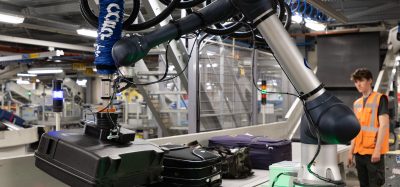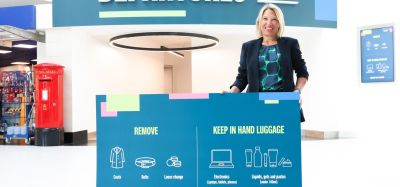World news: BagQuality Network
- Like
- Digg
- Del
- Tumblr
- VKontakte
- Buffer
- Love This
- Odnoklassniki
- Meneame
- Blogger
- Amazon
- Yahoo Mail
- Gmail
- AOL
- Newsvine
- HackerNews
- Evernote
- MySpace
- Mail.ru
- Viadeo
- Line
- Comments
- Yummly
- SMS
- Viber
- Telegram
- Subscribe
- Skype
- Facebook Messenger
- Kakao
- LiveJournal
- Yammer
- Edgar
- Fintel
- Mix
- Instapaper
- Copy Link
Posted: 19 October 2011 | Lyngsoe Systems | No comments yet
The huge cost and inconvenience associated with lost and delayed baggage is behind an initiative that shines the spotlight on the baggage handling challenge…


The huge cost and inconvenience associated with lost and delayed baggage is behind an initiative that shines the spotlight on the baggage handling challenge.
The ’BagQuality Network’ initiative has taken an innovative new approach to solving baggage-handling issues and comprises protocols to manage and improve the handling processes and services.
The BagQuality Network originated as a project by Scandinavian Airlines, Aalborg Airport, Aalborg University, International Air Transport Association (IATA) and Lyngsoe Systems, and is now in operation in Scandinavia. The project is furthermore supported by ACI and the Scandinavian airports.
Lyngsoe Systems is the software developer behind the new BagQuality measurement system and tools that provide the baggage information to the BagQuality Network.
Georg Steen Christensen, Project Manager Lyngsoe Systems, says: “The BagQuality Network solutions will increase network dynamics and optimize interplay between airlines, handlers and airports. Our BagQuality Network solution will automatically register baggage process data making it possible to focus on baggage handling performance and areas of responsibility from check-in to reclaim.”
Factual process data collected by the BagQuality measurement system, are analyzed with advanced software, and presented in various formats and reports to the relevant network members through the BagQuality tools. These process data will make it possible to base quality management on facts rather than on opinions.
For the first time, the high- and low-level performances in the logistics chain, and the responsible at that point, is visible. The ability to measure the quality throughout the chain makes individual links accountable for improving their baggage handling operations and is a significant step towards achieving cost reductions and to help visualizing the real cost for the baggage handling.
Improved baggage handling is not the only aim of the BagQuality Network. As Christensen explains: “Going forward, the BagQuality system provides a platform populated with baggage information that can be used to provide completely new passenger services”.
Aalborg Airport
Aalborg Airport already has RFID implemented for baggage sortation with RFID tags attached to all bags so it has been easy for the airport to implement the BagQuality system. Aalborg Airport believes the BagQuality system has a lot of potential.
Kim Bermann, COO Aalborg Airport, says: “We are very satisfied – it is a fantastic system. We have moved from manual sorting to a 100 percent fully automated sorting. And because of the RFID, we record almost zero mistakes in the sorting system today”.
Scandinavian Airlines
Scandinavian Airlines (SAS) is a partner in the BagQuality Network, which in phase 1 includes the Scandinavian destinations. For the first time, SAS has the means to measure the quality of their baggage service, identify problem areas and compare the baggage service quality on different destinations. It is now possible to define quality objectives for the baggage service.
Susanne Dahlberg, Vice President, SAS Ground Services Arlanda Airport, says: “I believe the BagQuality Network solution is an opportunity for Scandinavian Airlines to achieve an even better baggage delivery. I also think it will impact on our customer satisfaction in a positive way. And I think we will be able to reduce some costs and also to be more proactive”.
Professor Torben Bach Pedersen, Aalborg University, says: “The researchers from Aalborg University are excited about the research challenges. We will develop groundbreaking new techniques for collecting and analyzing the huge amounts of data from the world-wide BagQuality network in real time. Here we can build on our long experience with business intelligence systems and location data”, says Professor Torben Bach Pedersen from the Center for Data-Intensive Systems, who directs the research in the project.
Related topics
Related organisations
International Air Transport Association (IATA), Lyngsoe Systems


















